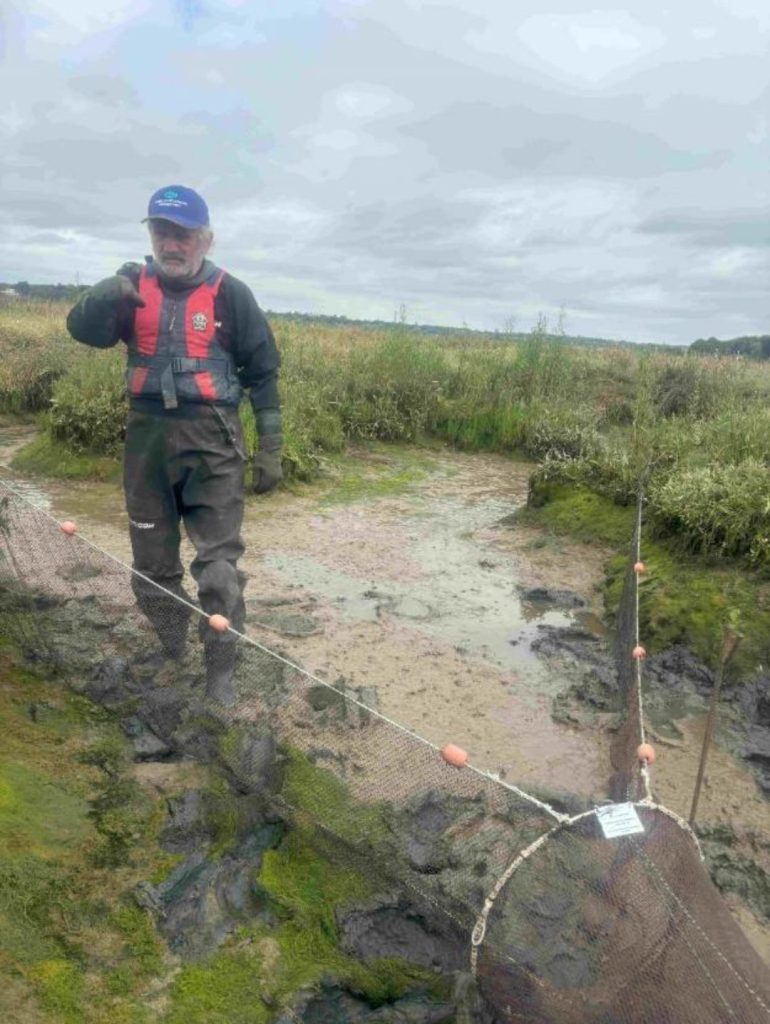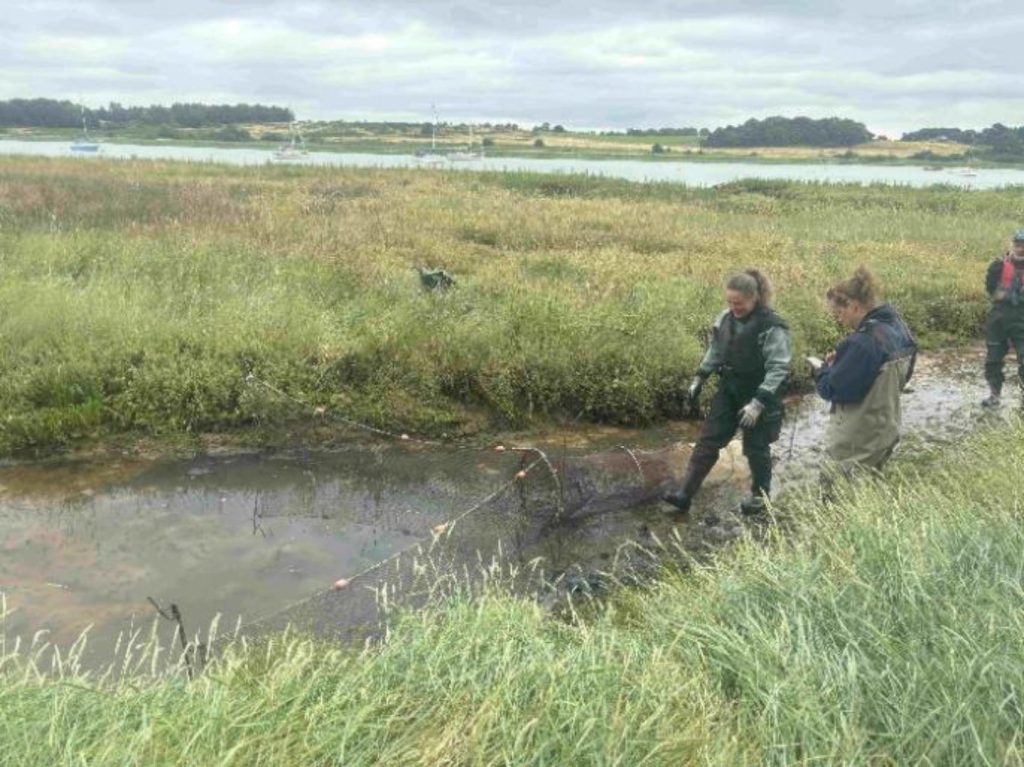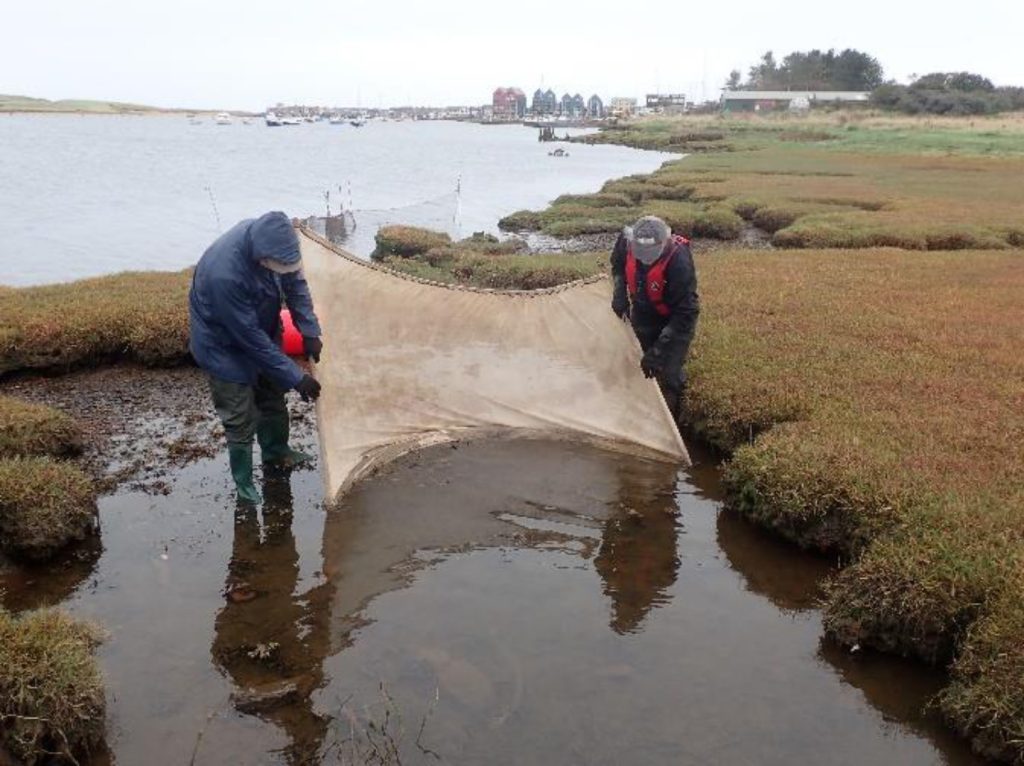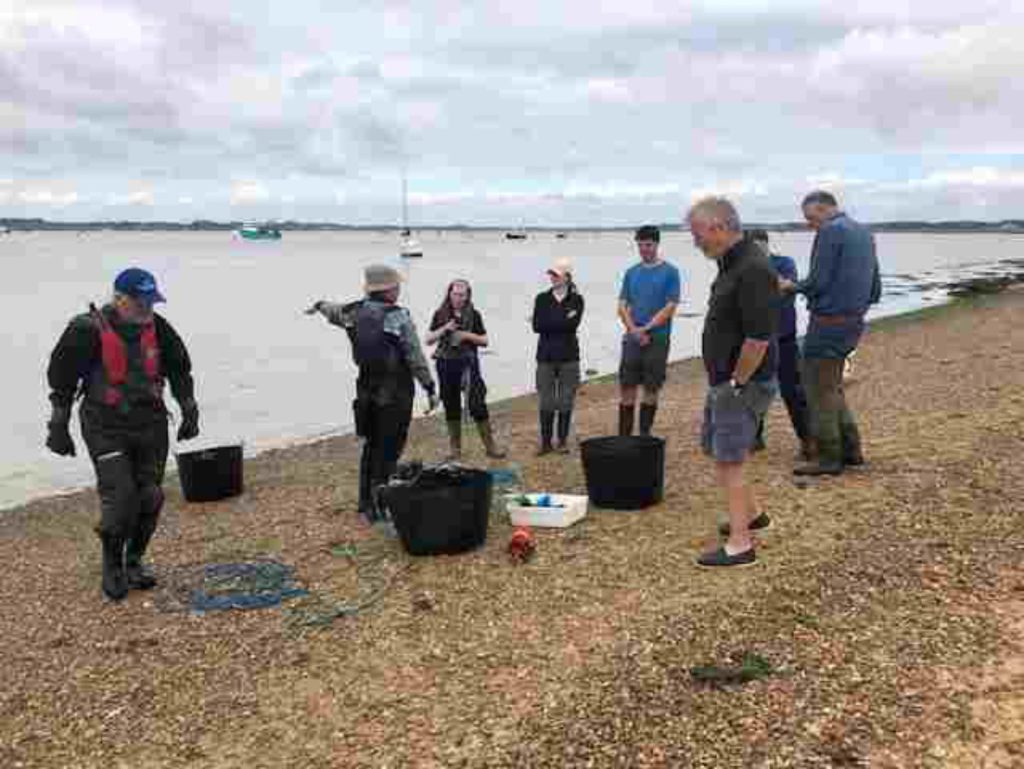Report from the Third Fish Survey conducted by the RDA and the Institute of Fisheries Management July 2024 by Steve Colcough
Introduction by Julia Jones
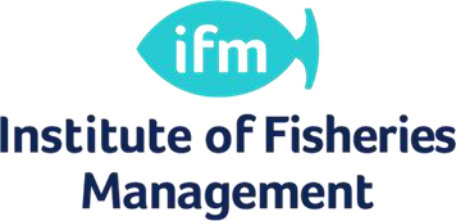
For the past three years, 2022, 2023 and 2024 the RDA has supported annual fish surveys in partnership with the Institute of Fisheries Management, represented by Steve Colclough. From the RDA side, enthusiasm and leadership come from Richard Verrill who initiated this project and has reported on it both here and in the Deben Magazine.
The 2024 survey also involved Suffolk Wildlife Trust as a new sampling site was located in the area of saltmarsh adjacent to Martlesham Wilds. Writing for the Deben Magazine Richard described the method of operating in this new site — setting a winged Fyke net across the creek at low tide, as well as using the seine netting techniques deployed at Bawdsey and elsewhere.
Juvenile fish come in with the tide to feed on the saltmarshes and then are caught on their way out, counted and released back into the river. The quantities of fish caught at Martlesham in the 2024 survey were very impressive and a good indicator of the health of that area of the river — as well as a reminder of the importance of the Deben saltmarshes.
Over the 2022, 2023 and 2024 numbers of juvenile fish have been good and the project is attracting interest from scientists in other areas.
Stephen Colcough’s 2024 report concludes:
The Deben estuary and its associated saltmarshes form an important nursery ground for a range of marine fish species today and the survey findings continue to demonstrate the functioning of these resources as Essential Fish Habitat.
The Martlesham Wilds NR results are entirely consistent with the type of community found in the upper reaches of estuaries in the South East of England and agree with past findings by the author at other sites in the upper and middle reaches of the Deben estuary in past years.
The Bawdsey site data demonstrates how dynamic marine and estuarine fish communities can be. Even though there are significant and predictable seasonal cycles in the behaviour of these species, sampling at similar times of year in the same locations does not necessarily mean that the communities reported are indeed similar. Each survey is no more than a snapshot in time, driven by the specific forcing factors (e.g. salinity, temperature, seasonality etc.) applying at that time. However the survey results across the period 2022-2024 are still generally consistent with what has been reported from the lower reaches of other estuaries in the South East in recent years.
The difference between the communities at Bawdsey and Martlesham Wilds demonstrate how salinity is a prime driver of fish distribution in estuaries and demonstrates the value of maintaining the survey programme at two very different sites at least, in future years.
The surveys conducted as collaborative citizen science exercises since 2022 clearly demonstrate the scientific value of such efforts, helping fill in some of the data gaps where other parties do not have the resources to investigate. Working alongside other bodies, citizen science going forward can prove to be a critical and supportive element in a more holistic understanding of our inshore coastal and estuarine waters, leading to more informed management strategies and wider engagement in management processes.
Both the RDA and Suffolk WT are keen to develop long term fish survey programmes in the estuary. The IFM will continue to support these programmes going forward.
Full report – River Deben fish surveys 2024

